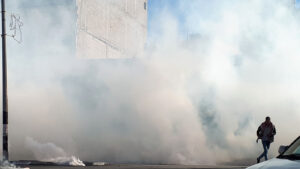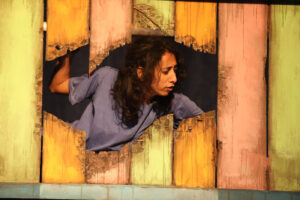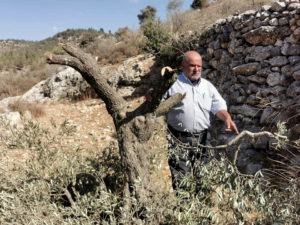First published in Palestine in 1976, and set in Nablus of a half century ago, Wild Thorns is considered the first Arabic novel to offer a glimpse of everyday life under Israeli occupation.
Wild Thorns, a novel by Sahar Khalifeh
Translated from Arabic by Trevor Legassick and Elizabeth Fernea
Saqi Books 2023
ISBN 9780863569869
Noshin Bokth
Written with astonishing candor and erudition, Sahar Khalifeh’s novel Wild Thorns is a poignant commentary on the psychological impacts of living under occupation. Following the lives of several characters in the immediate aftermath of the 1967 war, the reader is compelled to confront the realities of colonized people and the myriad ways they are forced to resist their debasement and, at the same time, survive.
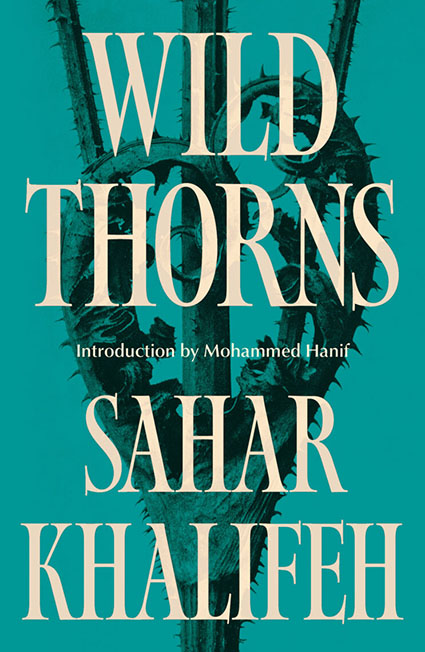
The novel centers on Usama, a young man returning to Palestine after five years in the Gulf. As he becomes reacclimated to his homeland, family, and old friends, he is astounded by what he perceives as Palestinian complacency with regard to the Israeli state. On the other hand, those who have endured the constant plunder reprobate him for leaving the country, even if temporarily. Khalifeh herself is a native of Nablus and was born under the British Mandate in 1941. This provocative portrayal of modern Palestine echoes her intimate knowledge of the daily intricacies of living in the occupied territories. Khalifeh writes:
“For the first time in five years Usama was returning to the West Bank. The reunion was already quite different from what he’d imagined, quite different from the flights of fancy in which he’d indulged. He felt that the West Bank had now been reduced to the size of a genie’s magic bottle… only hallucinations filled his mind now, and words that droned on with endless monotony … Yes, heaven was here beneath his feet and before his eyes. But he was now a prisoner in the genie’s bottle.”
The novel opens with an explicit scene in which Usama encounters Israeli officers at airport security on his way home to the West Bank. As he’s grilled with brutish force about his affairs and the reasons behind his return to Palestine, Khalifeh draws attention to all the other sounds that reach him from the adjacent interrogation rooms. A woman’s piercing screams and a man’s plea for mercy graphically provoke the reader’s senses and serve to cement and foretell the interminable humiliations that Usama and his fellow Palestinians continue to suffer. [As Orna Ben-Naftali and Michael Sfard observed in their book The ABC of the OPT: A Legal Lexicon of the Israeli Control over the Occupied Palestinian Territory, Israel’s military control over the West Bank and Gaza has become “the longest — and, accordingly, the most entrenched and institutionalized — belligerent occupation in modern history.” The Occupation is now in its 56th year. ED.]
Once he reaches home, Usama discovers his mother busily plotting his engagement to his delicate cousin Nuwar, whose brother Adil is not only a pillar of the community but also the breadwinner for his family, which includes innumerable siblings and an ailing father. We meet a kaleidoscopic array of characters: the aforementioned Adil, who, like all Palestinians, bemoans the occupation and yet, like so many, is a pragmatist, having abandoned his job at a failing farm to find work in Tel Aviv. Unlike him, his teenage brother, Basil, is an idealist who dreams of rebellion and revolutionaries. There is also Zuhdi, a young father who had been working alongside Adil in Israel before his imprisonment for striking an Israeli co-worker, the elderly and wise Abu Sabir, who was denied rightful compensation from Israeli authorities after a workplace injury, and the village women who ululate in defiance of Israeli pillaging.
Calls for revolution and dissent continually and emphatically resound within the novel. But while acts of martyrdom abound, most Palestinians’ urgent concerns lie in securing a paycheck to feed their families while trying to make it through the day alive. Khalifeh hones in on this roiling Palestinian reality amidst a media that is eager for passionate unrest.
Throughout the novel, Adil’s decision to leave his unprofitable work at a Palestinian farm for Tel Aviv is met with unfettered disdain by Usama, Basil, and, later, his disabled father. He walks to work with a badge of dishonor and anguish in spite of the fact that he is simply trying to keep his family from starving and his father from succumbing to disease. Competing philosophies of pragmatism, demagogy, capitalism, communism, and socialism make for an eloquent narrative. However, it is unfortunate that frequently, they fail to depict the nuances of the individual’s plight and responsibility. This is illustrated in a scene in which Usama watches a wealthy Palestinian proclaim on TV that “employment inside Israel is something that’s actually been imposed on our workers. We are not to blame and neither is our social structure. It’s the occupation.”
It is the individual that is at the crux of this narrative. Usama and Adil represent a striking dichotomy as they engage in a sentimental tug-of-war meant to bend the other to his perspective. The situation, as Adil affirms later, is far from straightforward and is, in fact, more multifaceted than others make it out to be. Many, like Usama, are inebriated with the thought of heroic action and ideals of justice. He reflects that “the point of the individual existed only through the group. Today, the difference between them lay in the fact that each believed he was in accord with the group.” He presumes that the people are brainwashed with lies and Israeli cash, which have blinded them to their principles, ethics, values, and the truth. None are spared his vitriol — from the Palestinian grocer who sells vegetables to the Israeli soldier, to those who smoke the cigarettes of American colonizers. Adil’s retort is that the people cannot resist if they are starving. As he sees it, Arabs from the Gulf states, who call for inflammatory revolutionary movements with seductive brilliance, will rarely pour their own money into building industries within Gaza and beyond. Far removed, they are never at risk and instead place the entire burden of liberation on those inside the occupied territories, while criticizing them for their inaction. With that, Khalifeh affirms, with painful acuity, that the same state working towards Palestinian erasure is one and the same keeping the cause alive.
Palestine’s in the heart, Neruda! In the pupil of an eye, in the very essence of life. Our nation will never sink. There’ll always be people who believe in the impossible.
The emotional turmoil that germinates within Palestinian minds cannot be understated. To be made to feel guilty for trying to live can only result in a volatile situation. We see this when Zuhdi ruminates on his role in the movement as a worker in Israel, whereby his innate desire to humanize his Israeli co-worker wreaks havoc on his psyche. And again, when Adil argues that these workers are merely men, just as exploited as they are — all victims of economic interests used to satisfy the bourgeoisie. Yet, paradoxically, the lowest-paid Israeli workers remain far more privileged than Palestinians like Zuhdi will ever be. This inner disquiet culminates in Zuhdi’s imprisonment, where his sense of national identity is questioned. When he laments, that “working in Israel does not mean being Israel’s agent! How else can I eat?” his desperation and grief are palpable. On the other hand, idealists like Usama and Basil aspire for incarceration, which they regard as a natural definition of courage and self-worth, the badge of their unwavering dedication to the cause. Towards the end, Usama’s radical notions of country, liberation, and protest blind him to the frustrations of working-class people. He cannot accept that people are attempting to adjust to life under occupation. Adil, too, runs out of steam, eventually becoming listless and losing his will. Khalifeh writes:
Why do these sad songs hurt us so much? Is it because we are a romantic people? He’d never been romantic himself. At least he wasn’t any longer, or so he believed. How had he come to that conclusion? Training. Bullets. Crawling on all fours. Pulling in your stomach. Such things make you unromantic in thought and deed Personal dreams evaporate, the individual becomes a single shot in a fusillade.
Occupiers bulldozing Palestinian homes is a fact interwoven in these characters’ daily, mundane conversations. It is as commonplace as the street peddlers crying out their wares: “Fish from Gaza! Oranges from Jaffa! Bananas from Jericho!” And through it all, people go on living, stoic and defiant, against this backdrop of violence and necrosis — scenes masterfully rendered into English by the book’s translators, Trevor LeGassick and Elizabeth Fernea. Among a chaotic scene of brutality, Adil stands on the pavement watching the people on their way to work, living their everyday lives, in which “Nothing had changed. The square stood where it always had; the town clock ticked slowly as it always had. Only the flowers seemed to have grown larger, taller; otherwise nothing had changed.”
Wild Thorns is ultimately a novel that scrutinizes the socio-economic disparities that inform a person’s reaction and choice of resistance and the confusion of circumstances that lead a person towards either brutality and civil disobedience, or into submission. It takes on the case of the individual to investigate how one can either skew a community into honorable resistance or become a conduit for caustic consequences. More than anything, it is an exhaustive and embracing meditation on Palestinian society, trauma, and resilience.



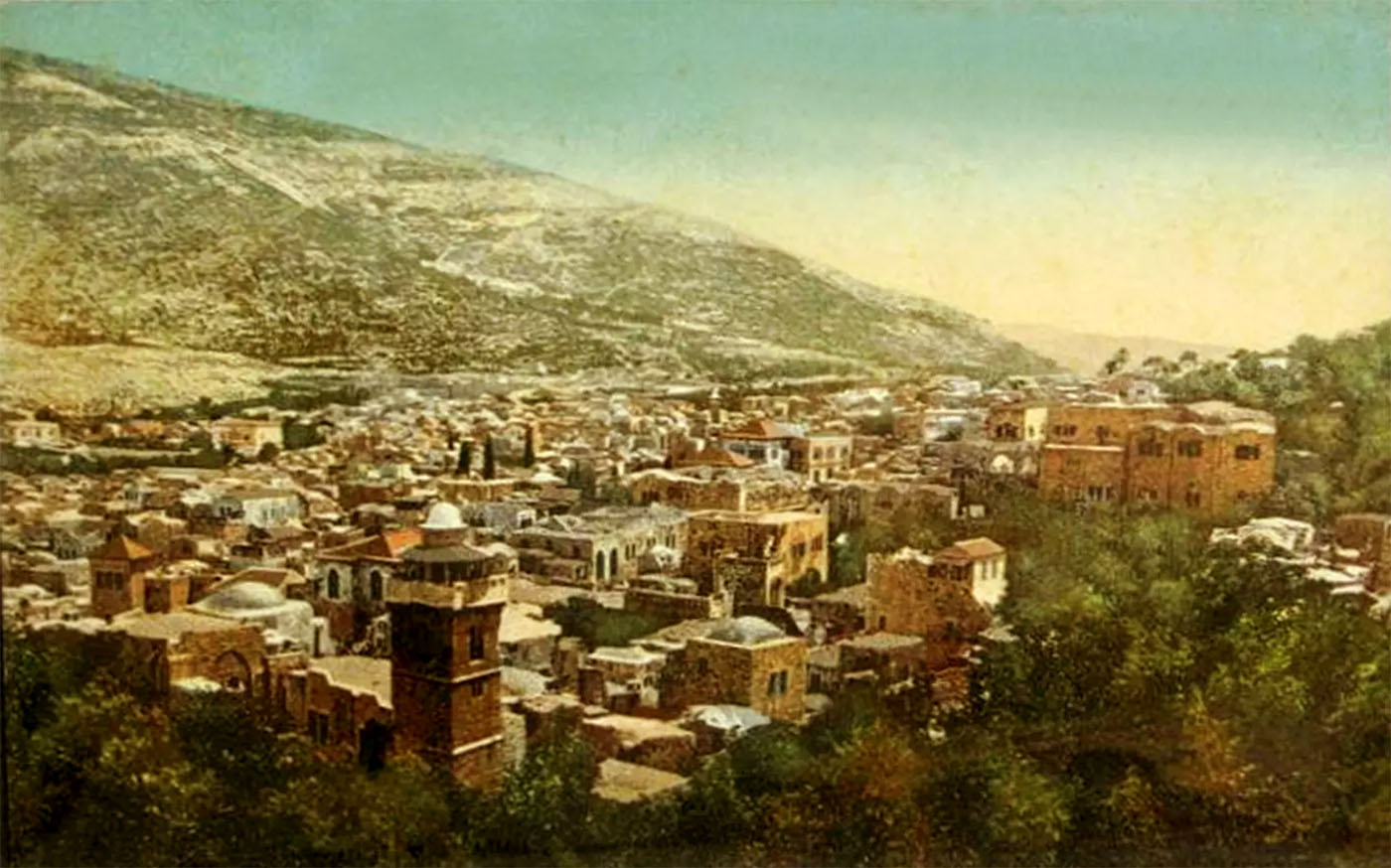
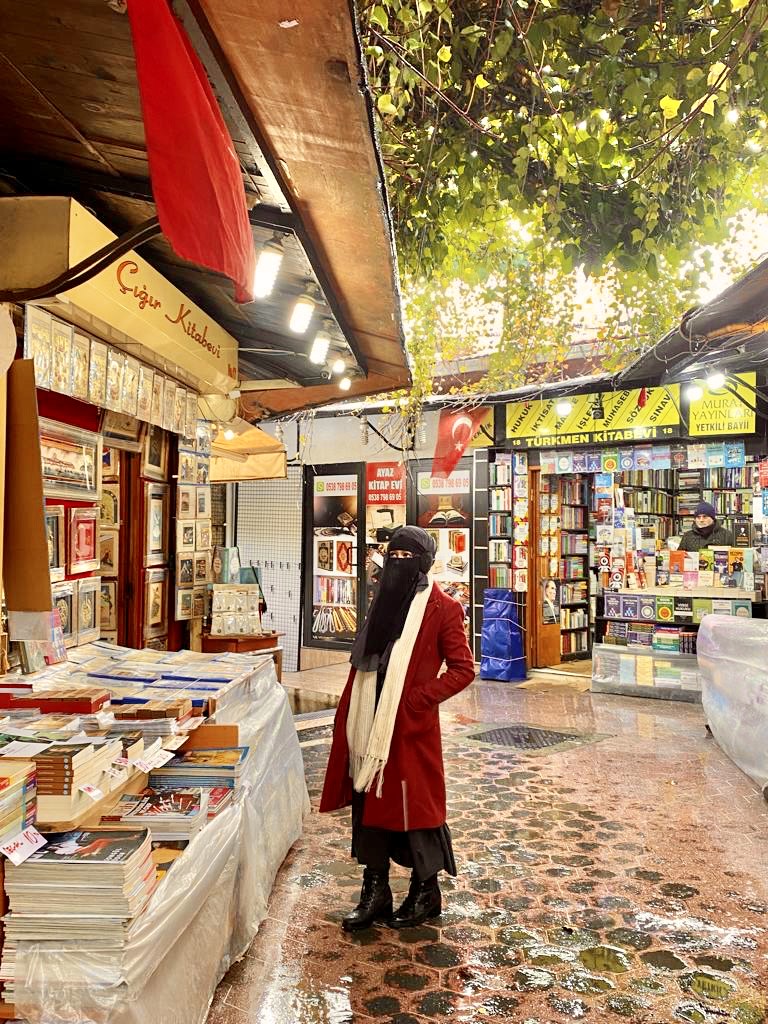










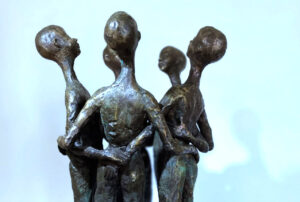
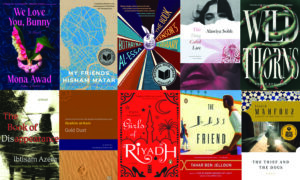
















































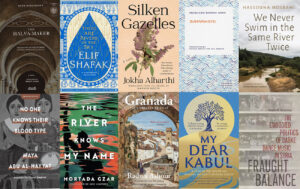


















![Fady Joudah’s <em>[…]</em> Dares Us to Listen to Palestinian Words—and Silences](https://themarkaz.org/wp-content/uploads/2024/03/SAMAH-SHIHADI-DAIR-AL-QASSI-charcoal-on-paper-100x60-cm-2023-courtesy-Tabari-Artspace-300x180.jpg)










